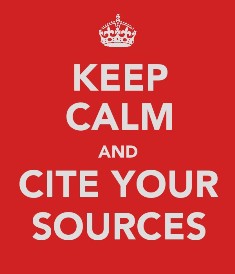Genealogical sources used

Sources in genealogy are really important, in particular recording where a particular piece of information came from. When I started doing this I heard the advice but didn't take it too seriously, something I regretted later, as I had to redo a lot of my earlier work. My other mistake was not standardising from the beginning how I recorded the complete information from sources, for example how to record a census location, or remembering to record the age at census or death in the correct field. If you do these things well from the beginning it will save you a lot of tiem later. In the early days a lot of information came from word of mouth, typically from relatives, I didn't record who said what, again something I regretted later.
Still with age comes wisdom (if you learn from your mistakes), sometimes the smallest piece of information can be used to verify that you have found an event relating to the "right" person. it is worth pointing out that most of genealogy is based on evidence produced by the recorded events in peoples lives, rather than the people themselves. Events such as:
- Birth
- Marriage
- Death
- Baptism/Christening
- Burial
- National Census
- Emigration/imigration
Sometimes these events record additional facts such as
- Age
- Family Relationships
- Occupation
- Marital status
In the end it is the sources that alllow you to build your family tree, and importantly let you make judgements about the people and relationships in it. Why will you need to make judgements? Because the data is often incomplete, not uniquely linkable to an individual, inaccurate, and ultimately people don't always tell the truth, or have a different perception about what is true over time. For example people often lie about their age, and how a place is identified may change over the decades. If the data was perfect, genealogy would be completely automated, and very boring as a hobby! The table below covers the main sources I use
| Source | Usage | Comments |
|---|---|---|
| Research collaborators | A rich source of all kinds of data | Starting with my own family, and then extending wider as the tree grows. Ultimately people know a lot about their own families, and are prepared to share that information if treated with a degree of sensitivity. One thing I would say is engage with your older relatives before it is too late through death or dementia. One thing that people can do which you won't find (yet) online is identify people older photographs. My advice is ask questions like who?, where?, when?, how old? etc and then record the answers in pencil on the back of the photo, together with the source information. Also seeing a face will often trigger other memories, so worth having a notebook or voice recorder handy |
| Family Documents | A rich source of all kinds of data | Key to scan what you can and organise it, ideally by linking the image to the individuals to which it relates. Original birth, death & marriage certificates will save you having to spend money getting copies, letters, wedding invitations, memorial cards, certificates and other documents all add some colour to the basic facts. |
| FreeBMD | Birth Marriage and Death index | This excellent resource is a great place to start for basic life events, it will also give you the information required to order certificates (I typically only order those of my direct ancestors). I also tend to use it to confirm things I have been told by collaborators or from other sources such as the census |
| UK Census (on Ancestry) | Family groups and occupations | The census is one of the key resources, I have used it extensively see the data tab above. One of the key issues can be the quality of the indexing, which can be poor, so it is worth developing search tactics to find the entries that are mis-indexed, and having a list of common mis-spellings or mis-transcriptions of your surnames. |
| Family Search (LDS/IGI) | Life events before 1900 (approx) | This is probably the entry point into the pre-census / public records data, essentially it's an index of parish records. If nothing else it will give you a starting point for parish records |
| Medway City ark | Early parish records for parts of Kent | This is one of the best examples I have found of a local authority on line records source, there are others you can find, and over time (given a better economic climate) it may become the norm. |
| Physical public records | All sorts | Not a source I have used a lot, because I don't live near any of records for the historic locations of my ancestors, but if you can get to an appropriate local records office I am sure there will be lots to find |
| Genuki | All sorts, but good on Geography | I have used this source for a basic understanding of the geography (typically parishes, towns, registration districts, counties etc). |
| Living relatives and pictures | This is a source I only thought of using in the past couple of years, it is good for confirming what you think you know from other sources, or for putting a face to a name. |